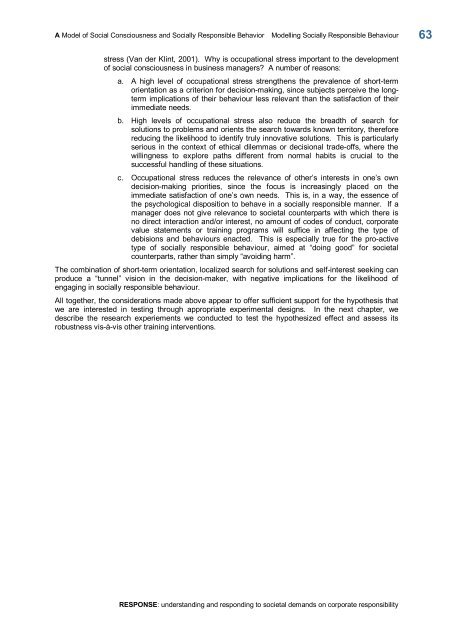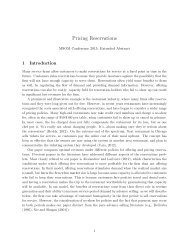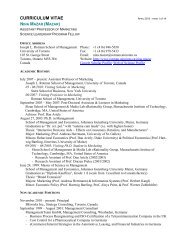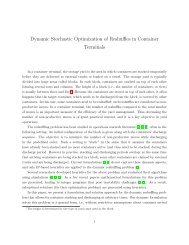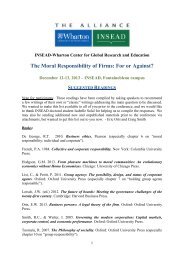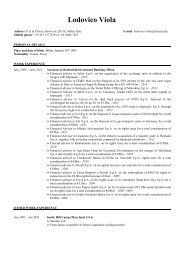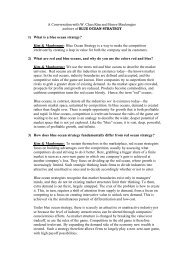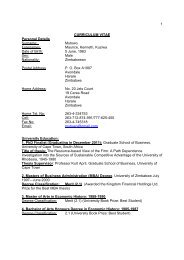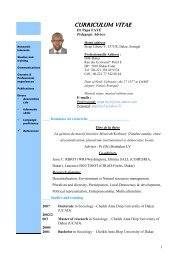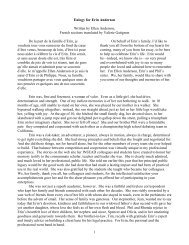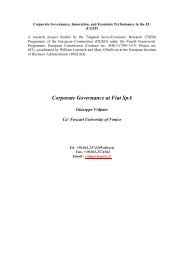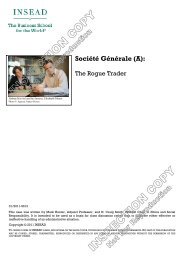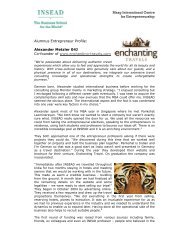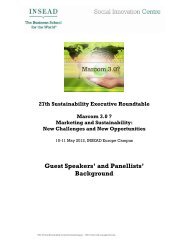RESPONSE - Insead
RESPONSE - Insead
RESPONSE - Insead
Create successful ePaper yourself
Turn your PDF publications into a flip-book with our unique Google optimized e-Paper software.
A Model of Social Consciousness and Socially Responsible Behavior Modelling Socially Responsible Behaviour<br />
stress (Van der Klint, 2001). Why is occupational stress important to the development<br />
of social consciousness in business managers? A number of reasons:<br />
a. A high level of occupational stress strengthens the prevalence of shortterm<br />
orientation as a criterion for decisionmaking, since subjects perceive the long<br />
term implications of their behaviour less relevant than the satisfaction of their<br />
immediate needs.<br />
b. High levels of occupational stress also reduce the breadth of search for<br />
solutions to problems and orients the search towards known territory, therefore<br />
reducing the likelihood to identify truly innovative solutions. This is particularly<br />
serious in the context of ethical dilemmas or decisional tradeoffs, where the<br />
willingness to explore paths different from normal habits is crucial to the<br />
successful handling of these situations.<br />
c. Occupational stress reduces the relevance of other’s interests in one’s own<br />
decisionmaking priorities, since the focus is increasingly placed on the<br />
immediate satisfaction of one’s own needs. This is, in a way, the essence of<br />
the psychological disposition to behave in a socially responsible manner. If a<br />
manager does not give relevance to societal counterparts with which there is<br />
no direct interaction and/or interest, no amount of codes of conduct, corporate<br />
value statements or training programs will suffice in affecting the type of<br />
debisions and behaviours enacted. This is especially true for the proactive<br />
type of socially responsible behaviour, aimed at “doing good” for societal<br />
counterparts, rather than simply “avoiding harm”.<br />
The combination of shortterm orientation, localized search for solutions and selfinterest seeking can<br />
produce a “tunnel” vision in the decisionmaker, with negative implications for the likelihood of<br />
engaging in socially responsible behaviour.<br />
All together, the considerations made above appear to offer sufficient support for the hypothesis that<br />
we are interested in testing through appropriate experimental designs. In the next chapter, we<br />
describe the research experiements we conducted to test the hypothesized effect and assess its<br />
robustness visàvis other training interventions.<br />
<strong>RESPONSE</strong>: understanding and responding to societal demands on corporate responsibility<br />
63


